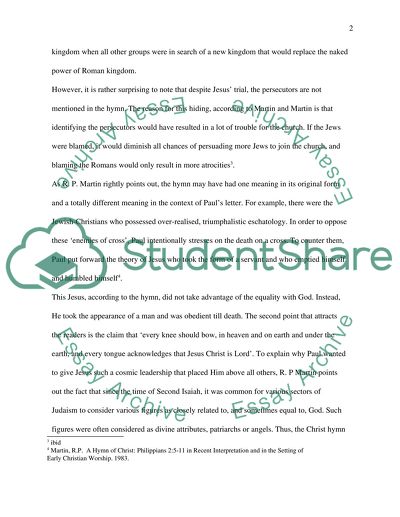Cite this document
(“Exegetical Paper on Christ Hymn Term Example | Topics and Well Written Essays - 1250 words”, n.d.)
Exegetical Paper on Christ Hymn Term Example | Topics and Well Written Essays - 1250 words. Retrieved from https://studentshare.org/religion-and-theology/1443907-exegetical-paper-on-phillipians
Exegetical Paper on Christ Hymn Term Example | Topics and Well Written Essays - 1250 words. Retrieved from https://studentshare.org/religion-and-theology/1443907-exegetical-paper-on-phillipians
(Exegetical Paper on Christ Hymn Term Example | Topics and Well Written Essays - 1250 Words)
Exegetical Paper on Christ Hymn Term Example | Topics and Well Written Essays - 1250 Words. https://studentshare.org/religion-and-theology/1443907-exegetical-paper-on-phillipians.
Exegetical Paper on Christ Hymn Term Example | Topics and Well Written Essays - 1250 Words. https://studentshare.org/religion-and-theology/1443907-exegetical-paper-on-phillipians.
“Exegetical Paper on Christ Hymn Term Example | Topics and Well Written Essays - 1250 Words”, n.d. https://studentshare.org/religion-and-theology/1443907-exegetical-paper-on-phillipians.


